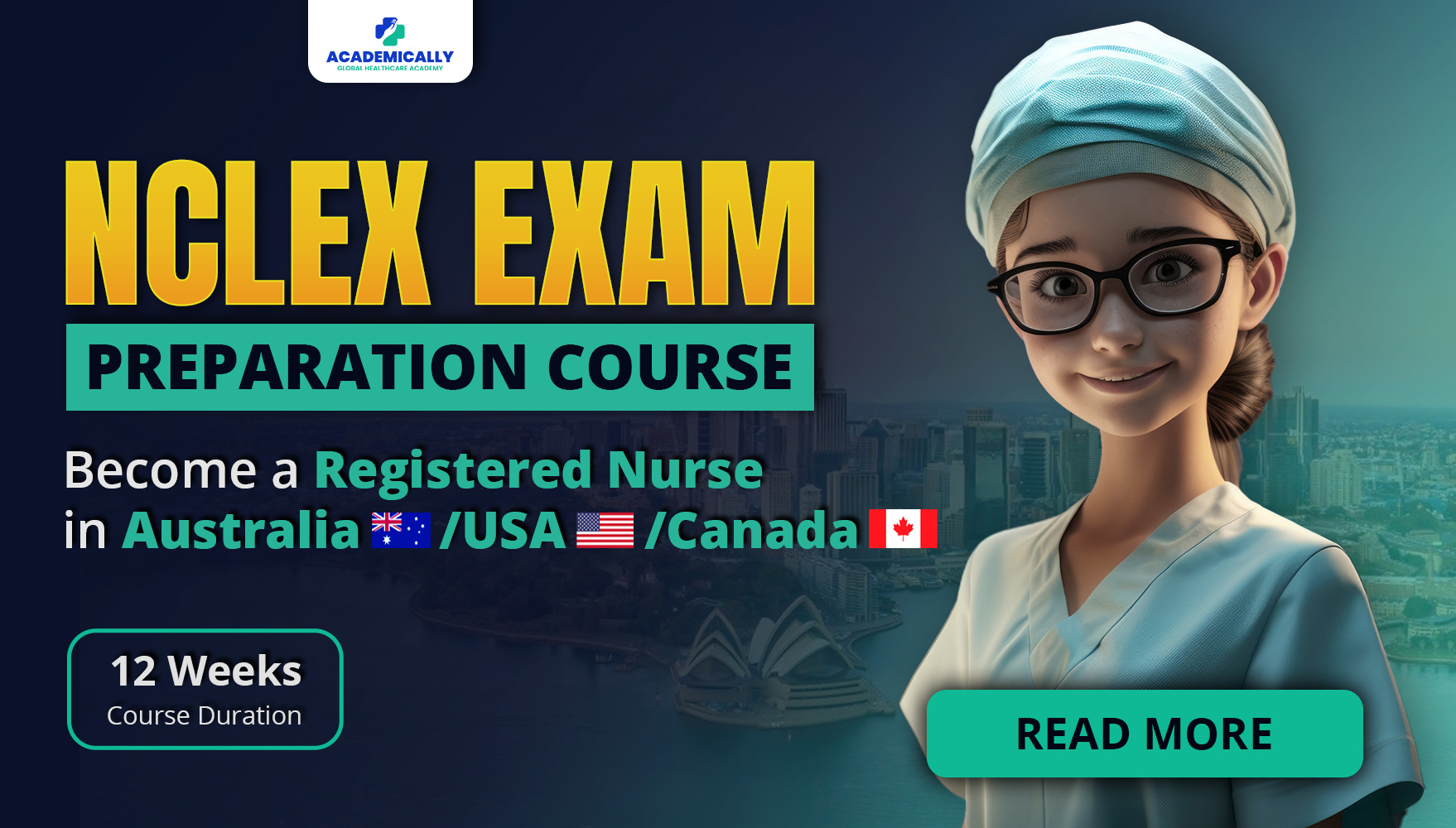Understanding the NCLEX-RN Exam
The NCLEX-RN exam is developed and administered by the National Council of State Boards of Nursing (NCSBN). It's a computerized adaptive test (CAT), which means that the difficulty level of the questions you receive adjusts based on your performance. The goal is to determine your competency level with a high degree of accuracy.
Nurses who pass the NCLEX-RN exam gain a recognized credential that allows them to practice as registered nurses not only within their home country but also in other countries that recognize the NCLEX-RN as a valid licensure exam, like the United States of America, Canada, and Australia.

The NCLEX-RN Exam Syllabus
The exam is divided into several categories or content areas, each representing a different aspect of nursing practice. The NCLEX-RN exam is divided into four main content areas:
1. Safe and Effective Care Environment
- Management of Care
- Safety and Infection Control
2. Health Promotion and Maintenance
3. Psychosocial Integrity
4. Physiological Integrity
- Basic Care and Comfort
- Pharmacological and Parenteral Therapies
- Reduction of Risk Potential
- Physiological Adaptation
Here's an overview of the main content areas covered in the NCLEX-RN exam:
Management of Care/Coordinated Care
Topics Covered:
- Advocacy for patients rights
- Confidentiality and privacy of patient information
- Ensuring continuity of care
- Ethical practice in nursing
- Obtaining informed consent from patients
- Utilizing information technology in healthcare
- Understanding legal responsibilities in nursing
- Implementing performance improvement measures
Basic Care and Comfort
Topics Covered:
- Using assistive devices to aid patients
- Assisting patients with elimination processes
- Addressing mobility and immobility issues
- Providing proper nutrition and oral hydration
- Promoting adequate rest and sleep for patients
- Ensuring personal hygiene for patients
Health Promotion and Maintenance
Topics Covered:
- Understanding the effects of aging on health
- Addressing health needs across developmental stages
- Strategies for disease prevention
- Conducting health screenings
- Addressing high-risk behaviours in patients
- Encouraging healthy lifestyle choices
- Teaching self-care practices to patients
Psychosocial Integrity
Topics Covered:
- Recognizing and addressing abuse and neglect
- Teaching coping mechanisms to patients
- Providing crisis intervention support
- Promoting cultural awareness in healthcare
- Understanding family dynamics and their impact on health
- Assisting patients through grief and loss
- Addressing mental health concerns
- Offering strategies for stress management
- Providing support for substance abuse issues
Physiological Adaptation
Topics Covered:
- Managing fluid and electrolyte imbalances
- Assisting patients in managing illnesses
- Responding to medical emergencies
- Understanding the pathophysiology of diseases
- Addressing unexpected patient responses to therapies
Pharmacological and Parenteral Therapies
Topics Covered:
- Recognizing and managing adverse effects of medications
- Understanding blood products and their use
- Performing accurate dosage calculations
- Setting and monitoring expected outcomes of treatments
- Safely administering medications
- Managing pain through pharmacological means
Reduction of Risk Potential
Topics Covered:
- Identifying changes and abnormalities in vital signs
- Interpreting diagnostic tests and laboratory values
- Mitigating potential complications in patients conditions
- Safely performing therapeutic procedures
Safety and Infection Control
Topics Covered:
- Preventing accidents and injuries in healthcare settings
- Implementing emergency response plans
- Applying Ergonomic principles for patient care
- Handling hazardous materials safely
- Ensuring home safety for patients
- Safely using medical equipment
- Developing security plans for healthcare environments
Prepare for the NCLEX-RN Exam
Preparation is the key to any exam. Here's how you can prepare for the NCLEX-RN Exam.
Review Content
Utilise textbooks, online resources, and review courses to refresh your knowledge in each content area.
Practice Questions
Access practice questions and mock exams to familiarise yourself with the types of questions you'll encounter and improve your test-taking skills.
Critical Thinking
The NCLEX-RN exam is designed to assess your critical thinking abilities. Practice analysing questions, prioritising care, and making sound clinical judgments.
Time Management
Since the exam is time-limited, practice managing your time during practice tests to ensure you can answer all questions.
Simulated Exams
Take full-length simulated NCLEX-RN exams to experience the actual testing environment and build your endurance.
Conclusion
The NCLEX-RN exam syllabus covers a wide range of nursing concepts and skills, reflecting the complexity of the nursing profession. By thoroughly understanding the content areas and diligently preparing through study, practice, and critical thinking exercises, you'll be well-equipped to succeed on exam day.
Remember that this exam is not just a test of your knowledge; it demonstrates your ability to provide patients with safe and effective nursing care. Approach your preparation with determination, confidence, and a commitment to excellence. Good luck on your journey to becoming a registered nurse!
Fill up this form for a free one on one counselling session.



